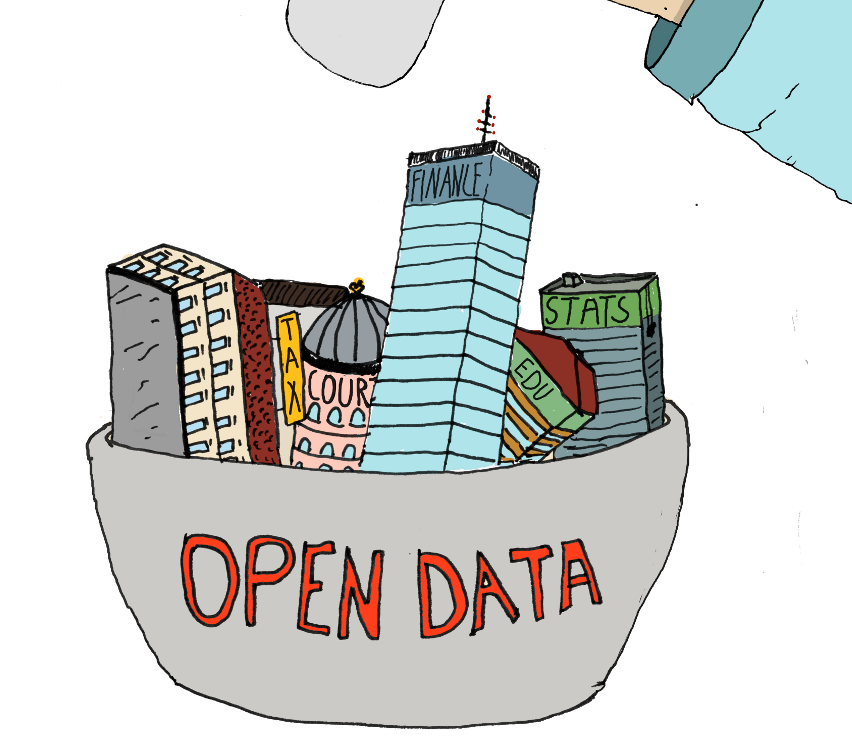By Drew Bush
In the first weeks of the New Year, two important news items for the Geothink audience made headlines. In Toronto, the Canadian federal government got ready to kick-off its second annual multi-city Canadian Open Data Experience (CODE) while the World Wide Web Foundation ranked the United States 2nd and Canada 7th for openness of governmental data in its second annual Open Data Barometer.
Canada Ranked 7th
Canada tied with Norway out of 86 countries surveyed based on whether government data was “open by default” as stipulated in the 2013 G8 Open Data Charter. Of more importance, however, was the country’s positive movement in the rankings and scores from last year, moving one spot up the index.
The survey examines availability of core government data such as company registers, public sector contracts, land titles, how governments spend money and how well public services perform. The U.K. is considered the global leader for open government data, publishing nearly all of these types of data.
Globally, the authors of the report state “there is still a long way to go to put the power of data in the hands of citizens. Core data on how governments are spending our money and how public services are performing remains inaccessible or pay-walled in most countries.”
That’s because fewer than 8 percent of surveyed countries publish datasets on subjects like government budgets, spending and contracts, and on the ownership of companies, in bulk machine-readable formats and under open re-use licenses.
A few key highlights of the report: 1. Only the U.K. and Canada publish land ownership data in open formats and under open licenses; 2. Only the U.K. and the U.S. publish detailed open data on government spending; 3. And, only the U.S., Canada and France publish open data on national environment statistics. Finally, open mapping data is only published in the U.K., the U.S. and Germany (an area where Canada lags).
CODE Hackathon Kicks-Off
In Toronto, developers, graphic designers, students, and anyone interested in trying their hand at coding are getting ready to create innovative uses for the Canadian government’s open data and to win up to $15,000 from the Government of Canada. The 48-hour event is set to begin on February 20th.
Innovations developed at hackathons like this could one day fuel improvements in access to government data. The event attracted 927 developers in 2013 and that number increased to over 1,000, organizers said, the day of the event.
“Open data is a brand new industry,” Ray Sharma, founder of the event and XMG Studios, told CTV News. “We are in an ice berg situation where we’ve only seen the tip of the data that will become available.”
But just what kind of industry is open to debate, as Geothink researchers Peter Johnson and Pamela Robinson examined in a recent paper. Their questions included whether civic hackathons have the potential to replace the traditional ways that government purchases products and services, and whether these events can be considered new vectors for citizen engagement, according to a post Johnson wrote for Geothink.
For more on CODE, you can watch Canada’s President of Treasury Board, Tony Clement here or read more about this year’s event here.
If you have thoughts or questions about the article, get in touch with Drew Bush, Geothink’s digital journalist, at drew.bush@mail.mcgill.ca.
